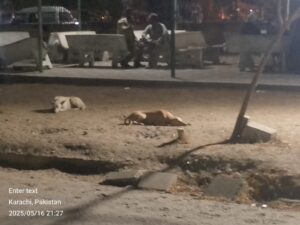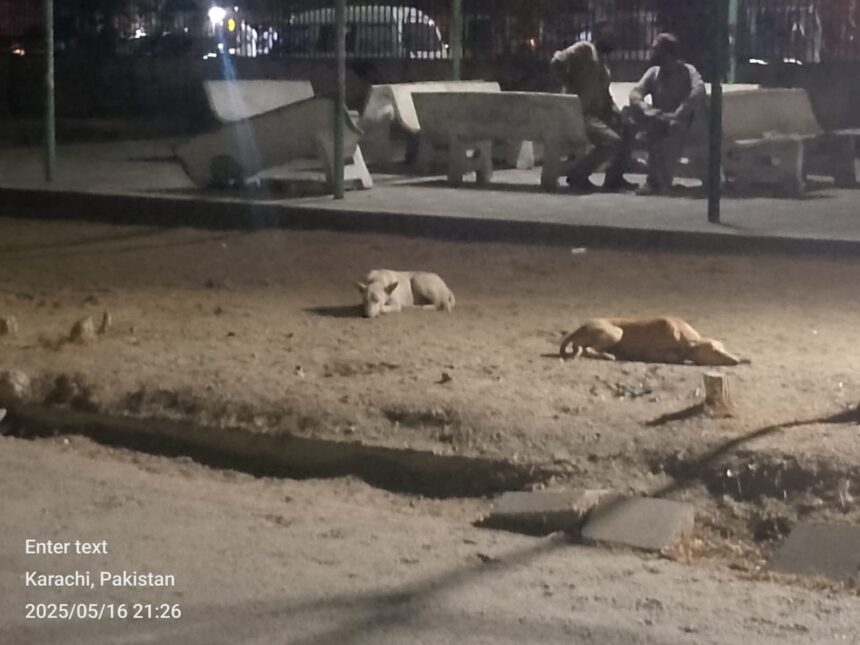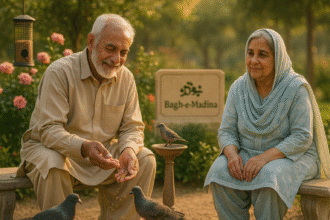Karachi – May 18, 2025.
Reporter (Niaz ali ) The Institute of Heart Diseases (KIHD), situated in the heart of the city at Federal B Area Block 16, has become a hub not of healing—but of hazard. A growing population of stray dogs on hospital premises has sparked serious concerns among staff, patients, and visitors, as the management and Karachi Metropolitan Corporation (KMC) appear to have failed in maintaining basic safety standards.
Despite being a critical cardiac care center, KIHD is grappling with an alarming rise in stray dogs occupying its outdoor areas. Eyewitnesses and hospital staff confirm that dogs roam freely within the premises, especially at night, often seen sleeping in hospital gardens and corridors. Some patients and employees have reportedly been bitten, prompting immediate medical attention and deep concern over potential rabies risks.
“These animals pose a severe danger to both patients and employees,” said OPD Dr , at KIHD. “This is not a park or shelter; it’s a hospital. We have repeatedly submitted complaints, yet there has been no effective response from KMC.”
Photographs taken on the night of May 16 serve as a stark visual testimony to the gravity of the situation. Multiple dogs can be seen lying undisturbed near hospital buildings and walkways, with no sign of animal control or security measures in place.
Residents and medical professionals alike are questioning the failure of city authorities. “KIHD serves hundreds of patients daily. If this is the condition of a major city hospital, one can only imagine the situation in smaller government health centers,” a visitor remarked.
The lack of action not only puts public health at risk but also reflects poorly on the municipal commitment to cleanliness and safety. As Karachi continues to grow as a megacity, urban management and public health infrastructure demand urgent reforms.
Immediate intervention from KMC and hospital authorities is imperative. The safety and dignity of healthcare institutions must not be compromised by such avoidable neglect.














